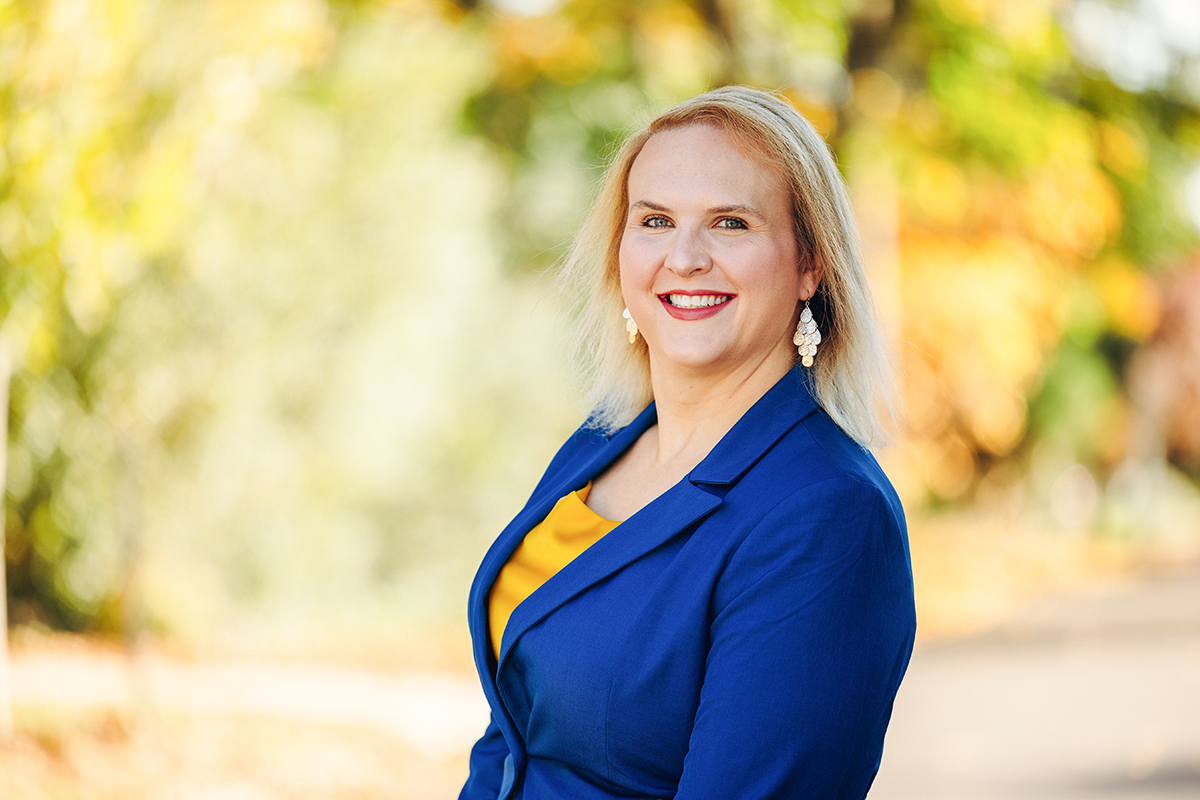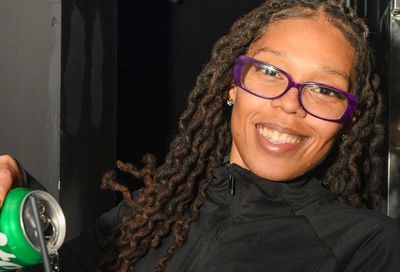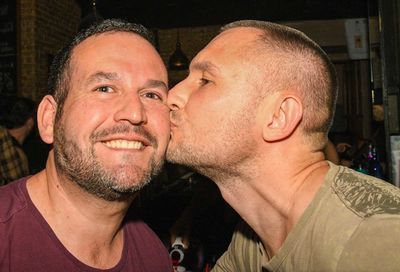Amir Ohana Becomes Israel’s First Openly Gay Knesset Speaker
Likud politician assumes prominent role that allows him to set the legislative agenda for Israel's elected parliament.

On Thursday, the Knesset, or Israeli parliament, elected Amir Ohana, a politician with the right-wing Likud party, as its next speaker, making him the first openly gay person to hold the role.
“I pledge to do my best to be worthy of the trust you put in me,” Ohana told Knesset members following a 63-5 vote that saw all lawmakers from parties forming Israel’s next coalition government — even those from ultra-Orthodox parties — voting in favor of his appointment.
Ohana’s path to the speakership was confirmed on Wednesday following an internal vote of members of the Likud party, which comprises the largest group within the governing coalition, reports the Times of Israel.
The ultra-Orthodox parties who were part of the coalition government — Shas, the Religious Zionist party, United Torah Judaism, Otzma Yehudit, and the anti-LGBTQ party Noam, the latter of which has previously run election ads linking gay people with child trafficking — then were left with effectively no choice but to vote for Ohana, given that no members of the opposition bloc would.
As speaker, Ohana will exercise significant influence over the Knesset’s legislative agenda, overseeing legislative sessions and maintaining decorum in the body. An ally of Prime Minister Benjamin Netanyahu, he previously served as justice minister and public security minister under previous Likud governments.
Despite voting for Ohana as speaker, Shas MK Yoav Ben-Tzur, who will be a minister in the Welfare Ministry in the new government, told the Ynet news site that he had reservations about supporting Ohana.
“We aren’t happy with the path he’s taking but we look at the person and not his tendencies,” Ben-Tzur said.
In his first remarks as speaker, Ohana thanked Netanyahu for his “courage and trust” in backing his candidacy, saying he and the prime minister have “traveled a long way together” and “will, with God’s help, carry on further.”
He also thanked his parents, who were in the gallery, for accepting him “for who I am,” as well as Alon Haddad, his partner of nearly 18 years, who was in the gallery with the couple’s two children.
Ohana also vowed that the incoming coalition government wouldn’t revoke LGBTQ freedoms or rights.
“This Knesset, under the leadership of this speaker, won’t hurt them or any other family, period,” he said, referring to his own family.
Ohana’s comments come after several of Likud’s ultra-Orthodox and far-right partners in government have indicated their intent to alter existing nondiscrimination laws, such as Knesset member Orit Strock, a member of the Religious Zionist party, who recently argued that religiously observant Israeli doctors should be allowed to deny treatment or refuse to perform certain medical procedures if doing so would violate their religious beliefs.
Similarly, Religious Zionist MK Simcha Rothman defended amending nondiscrimination laws to allow business owners to deny service to others based on their religious beliefs. Both Strock and Rothman’s comments have raised flags among members of the LGBTQ community, who fear they may end up on the receiving end of some of those refusals if the law is amended.
Still other coalition partners have raised flags among socially liberal segments of Israeli society. For example, United Torah Judaism MK Uri Maklev, who is reportedly to be in charge of social equality for women and LGBTQ people under the new government, has been criticized on social media for previously expressing support for conversion therapy.
Additionally, LGBTQ rights group The Aguda — Association for LGBTQ Equality in Israel has flagged Noam MK Avi Maoz, who slated to serve as a deputy minister in charge of “Jewish identity” in the incoming government, for a list his party reportedly drew up in 2019 singling out prominent LGBTQ journalists, women’s rights activists, and “leftist” Justice Ministry staff. It is unclear what the purpose of creating the list was, though critics have referred to it as a “blacklist.”
Maoz has defended the list as “lecture materials gathered from news websites to show the influence in various public systems” of LGBTQ individuals and left-wing ideology. He has dismissed reports mentioning the list as an attempt to “defame, demonize and shame” him, claiming he has nothing against individual LGBTQ people, but “LGBT-ism as an agenda and as a political movement.”
Maoz, who voted to confirm Ohana as speaker, accused the media of “purposefully and maliciously trying to portray me as someone who is fighting against certain individuals. As if Stalinist cleansings are about to start, or at least McCarthyist persecution. Of course, reality is the complete opposite.”
Netanyahu has insisted that his government will not reduce or erode LGBTQ rights, despite coalition agreements reached between Likud and its far-right partners that call for revisiting the country’s nondiscrimination laws to permit religious-based refusals. Some left-wing activists have also criticized Ohana for being conspicuously silent about some of the controversies raised by far-right politicians’ recent statements about their priorities under the new government.
Ohana’s ascension to the speakership is dramatically different from when he was first sworn into the Knesset in 2015, as noted by the Jerusalem Post.
At the time Ohana was sworn in, 13 members of the Knesset from United Torah Judaism and Shas walked out of the chamber in protest. This time, they were unable to if they wished to form a working government, as the right-wing coalition only holds 64 of 120 seats in the Knesset, requiring the coalition to stay largely intact in order to approve any motion or pass legislation.
According to World Israel News, there was some rude behavior from two ultra-right MKs. United Torah Judaism MKs Meir Porush and Moshe Gafni covered their faces when Ohana was thanking his husband and their two children for their support. Porush reportedly turned to Gafni during the speech and exclaimed, “What is this?”
However, Ohana, like he did back in 2015, is likely to take any criticism or anti-LGBTQ sentiment in stride. Back in 2015, after the right-wing walkout to protest his swearing in, Ohana downplayed the demonstration, according to the Middle Eastern news website Al-Monitor.
“During the speech I didn’t even notice their absence, and later, when I heard about it, I could only hope that on the issue of LGBT rights, this absence will continue. It will be wonderful if they’re not there, because then I will be able to really push through something and they won’t be there to object,” he said at the time.
Editor’s note: This story was updated to include more information about the reaction to Ohana’s swearing in.
Support Metro Weekly’s Journalism
These are challenging times for news organizations. And yet it’s crucial we stay active and provide vital resources and information to both our local readers and the world. So won’t you please take a moment and consider supporting Metro Weekly with a membership? For as little as $5 a month, you can help ensure Metro Weekly magazine and MetroWeekly.com remain free, viable resources as we provide the best, most diverse, culturally-resonant LGBTQ coverage in both the D.C. region and around the world. Memberships come with exclusive perks and discounts, your own personal digital delivery of each week’s magazine (and an archive), access to our Member's Lounge when it launches this fall, and exclusive members-only items like Metro Weekly Membership Mugs and Tote Bags! Check out all our membership levels here and please join us today!

























You must be logged in to post a comment.